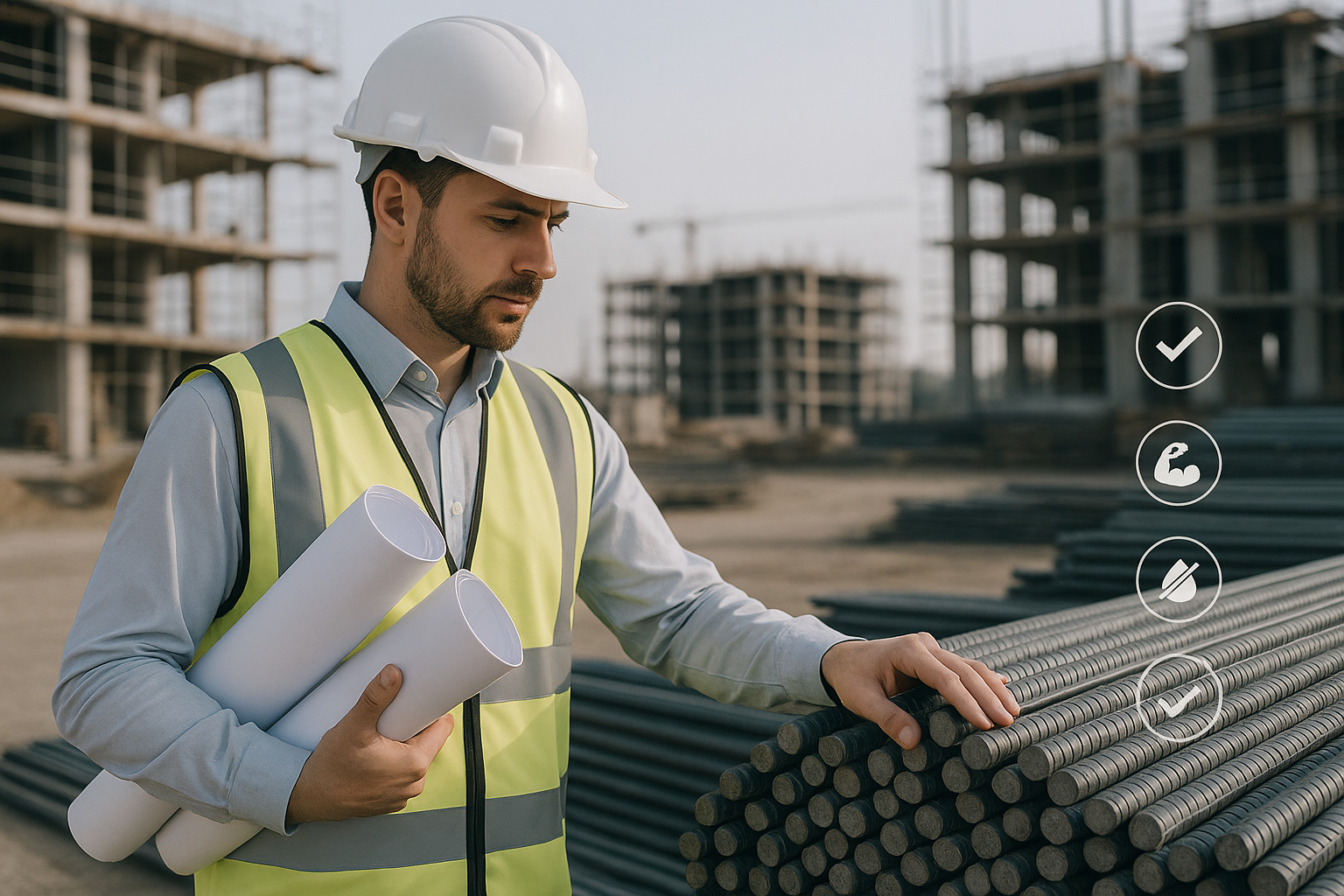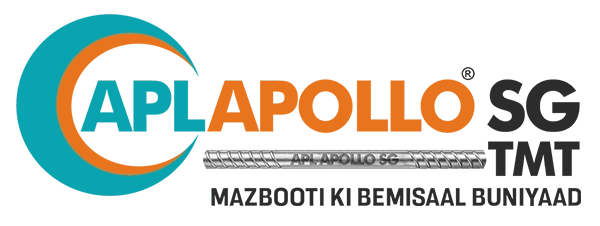
Whether you’re building a residential home, a commercial complex, or a large-scale infrastructure project, one decision will directly impact your structure’s strength and lifespan — the choice of TMT bars.
TMT (Thermo Mechanically Treated) bars are the backbone of construction. Their ability to provide tensile strength while remaining ductile makes them essential for safety and durability. Yet, with so many brands, grades, and types available in the Indian market, choosing the right one can feel overwhelming — especially when lives and investments are at stake.
In this guide, we’ll walk through the key factors contractors, builders, and even individual homeowners should consider before selecting TMT bars — based not just on price, but performance, trust, and long-term value.

Before even looking at steel grades or brands, start with a clear understanding of your project’s needs.
- Are you building in a seismic zone?
- Will your structure be multi-story or single-level?
- Are you working in a coastal region where corrosion is a concern?
- Will there be heavy load-bearing sections, like basements or columns?
Your answers to these questions will help determine the grade and type of TMT bar needed.


TMT bars in India are typically graded based on yield strength, which determines how much stress the bar can handle before deforming.
Here’s a quick comparison:
Grade | Yield Strength | Best For |
Fe 500 | 500 N/mm² | Standard residential & commercial use |
Fe 500D | Higher ductility than Fe 500 | Earthquake-prone regions |
Fe 550 | 550 N/mm² | High-rise buildings, heavy load zones |
Fe 550D | High strength + ductility | Bridges, flyovers, industrial sites |
Choosing the right grade is critical. For most residential constructions, Fe 500D is a safe and popular option as it offers both strength and flexibility — especially in places like India where seismic activity is a concern.

Strength is just one part of the equation. A TMT bar also needs to be ductile — meaning it can bend without breaking.
Why does this matter?
In earthquakes or during settling of foundations, rigid bars can snap. But ductile bars absorb shock and allow the structure to flex without collapse. This makes Fe 500D and Fe 550D preferred in most modern constructions.
APL Apollo SG TMT Bars, for instance, are known for their balanced mix of strength and flexibility, meeting the demands of both residential and heavy-duty applications.

Every genuine TMT bar should come with BIS (Bureau of Indian Standards) certification, and manufacturers should provide mill test certificates on request.
When buying in bulk or from local distributors, ask for:
- Tensile strength report
- Chemical composition
- Bending test results
- Corrosion resistance
If a manufacturer or dealer hesitates to provide this, that’s a red flag. Even if you’re buying from trusted names like APL Apollo SG TMT, verifying documentation ensures transparency and quality.

India has highly varied climate zones — from coastal Tamil Nadu to dry Rajasthan to humid Assam. In coastal or flood-prone areas, steel corrosion is one of the leading causes of structural damage.
To combat this, look for TMT bars that have:
- Low carbon content (which improves corrosion resistance)
- Anti-rust coatings (optional but helpful)
- Thermo mechanical treatment consistency
APL Apollo SG TMT Bars, for example, use advanced quenching systems that create a strong, corrosion-resistant outer layer while maintaining a soft, ductile core.

Many contractors rely on local dealers for convenience — but it’s critical to understand where your steel comes from.
Ask questions like:
- Who is the manufacturer?
- Are the bars fresh stock or leftover inventory?
- Is there a batch number and test certificate?
APL Apollo, through its network of authorized steel distributors across India, ensures traceability and consistent quality. Always prefer distributors who can provide original invoicing, proper billing, and customer support in case of issues.


Here’s a small but often overlooked detail: rib patterns.
Why it matters:
- Ribs on the bar help bind the concrete tightly, ensuring load transfer and structural stability.
- Poor rib design = weak bond with cement = cracks or collapse over time.
High-quality brands like APL Apollo SG ensure uniform rib patterns created through automated rolling mills. Also, make sure bars are:
- Cut precisely to standard lengths (usually 12 meters)
- Free from surface cracks or rust patches

Some bars may look strong but are underweight, which compromises their strength. Others may be overweight, increasing your project cost unnecessarily.
Always use a digital scale to verify weight. The standard weight for a 12-meter Fe 500 12mm bar should be 10.66 kg. A variation of ±5% is acceptable. Anything beyond that is suspect.

For large projects, it’s not just about buying steel — it’s about service.
A good distributor or manufacturer will help you with:
- On-site delivery
- Flexible tonnage supply
- Technical guidance
- Returns or exchanges (if needed)
APL Apollo SG TMT Bars are supported by a strong dealer-distributor network, meaning support is often just a call away.

Finally, choosing the right TMT bar is not a one-time decision. Contractors and builders who regularly work with reliable steel partners enjoy better pricing, smoother logistics, and faster project timelines.
Forming a long-term relationship with a trusted steel brand and distributor can be a game-changer.
That’s why many professionals across India rely on APL Apollo SG TMT Bars — a name known for quality, trust, and strong service.
Final Checklist Before You Buy:
- Know your project’s structural needs
- Choose the correct grade (Fe 500D, Fe 550D, etc.)
- Verify BIS certification & test reports
- Check for ductility and corrosion resistance
- Inspect rib design and weight accuracy
- Buy from authorized, reputable sources
- Consider long-term service and support

Choosing the right TMT bars is not about picking the cheapest option, but selecting one that ensures safety, longevity, and peace of mind. Whether you’re an experienced contractor or building your first home, the right decision today could save lives tomorrow.
APL Apollo SG TMT Bars — with their certified strength, durability, and trusted distribution network — are helping India build stronger, safer structures every day.




Pingback: TMT Bar Bending & Cutting Best Practices | SG Mart Limited
Pingback: Rising Steel Price & Green Steel Mandates 2025 | Impact on TMT Bar Prices
Pingback: Fasteners in India for RCC & Steel | APL Apollo SG